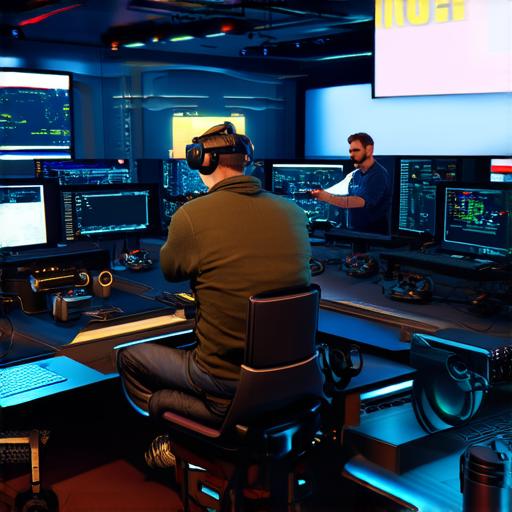Introduction:
The world of video game development is an exciting and lucrative field, filled with endless possibilities for creativity and innovation. Whether you’re a seasoned programmer or a budding artist, becoming a video game developer can be a rewarding and fulfilling career path that combines your skills and passions. In this comprehensive guide, we will explore the various steps and considerations involved in becoming a video game developer, from acquiring the necessary education and skills to finding employment opportunities and building a successful career in the industry.
Step 1: Choose Your Path
Before diving into the world of video game development, it’s essential to determine which path is right for you. There are several areas within the field that require different skill sets and expertise, including game design, programming, art, animation, and production. Each role plays a crucial part in creating an immersive and engaging gaming experience, so it’s important to choose the path that aligns with your strengths and interests.
Game Design:
If you have a passion for creating unique and innovative games, then game design may be the right path for you. Game designers are responsible for conceptualizing and designing game mechanics, storylines, levels, characters, and other game elements. They use their creativity and problem-solving skills to ensure that the game is engaging, challenging, and fun for players. To become a game designer, you typically need a bachelor’s degree in game design or a related field, as well as practical experience working on game projects.
Programming:
For those with a strong background in computer science and programming, becoming a video game programmer can be an exciting and challenging career path. Game programmers are responsible for writing and implementing code that controls the behavior of game elements, such as characters, objects, and user interfaces. They also work on optimizing game performance and fixing bugs and glitches. To become a game programmer, you typically need a bachelor’s degree in computer science or a related field, as well as experience working with programming languages such as C++, Java, or Python.
Art and Animation:
If you have a talent for creating beautiful and engaging art and animation, then this may be the right path for you. Artists and animators in the video game industry work on creating visual elements such as characters, backgrounds, effects, and user interfaces. They use their artistic skills and technical expertise to ensure that the game’s visual elements are of high quality and enhance the overall gaming experience. To become an artist or animator in the video game industry, you typically need a bachelor’s degree in art or animation, as well as practical experience working on game projects.
Production:
Video game production involves managing all aspects of game development, from pre-production to post-production. Producers work closely with game designers, programmers, artists, and other team members to ensure that the game is delivered on time and within budget. They also work on marketing and promoting the game, as well as managing the project’s resources and finances. To become a video game producer, you typically need a bachelor’s degree in game production or a related field, as well as practical experience working on game projects and managing production teams.
Step 2: Acquire the Necessary Education and Skills

Once you have chosen your path, it’s important to acquire the necessary education and skills to succeed in the industry. Depending on your chosen path, this may involve earning a bachelor’s degree, completing a bootcamp or online course, or gaining practical experience through internships or freelance work. Here are some tips for acquiring the necessary education and skills:
Game Design:
To become a game designer, you typically need a bachelor’s degree in game design or a related field. This will give you a strong foundation in game mechanics, storytelling, art, and programming. You can also gain practical experience by working on personal game projects or participating in game jams and hackathons.
Programming:
To become a game programmer, you typically need a bachelor’s degree in computer science or a related field. This will give you a strong foundation in programming languages such as C++
